Games that were a big deal (for, like, a day) in 2015
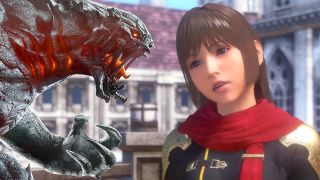
Feels like a lifetime ago
Every so often, months of mounting excitement for an upcoming game fizzles into complete apathy, even over the course of a single week. And with the amount of money being shoveled into the piping-hot marketing engine these days, experiencing anything less than earth-shattering euphoria on launch day can feel like a bit of a letdown. Throughout 2015, a handful of highly anticipated games from big publishers seemed like they were poised to dominate sales charts and ride the wave of positive buzz they had been building. Instead, they practically faded away moments after their grand debut. You might've even forgotten that they happened at all.
It's not that these games are outright bad - they just fell way, way short of the success they were seemingly destined for, if the hype machine is to be believed. Let's chart a course to see what went wrong for these would-be megahits, and let them serve as a lesson: sometimes it's best to keep your expectations in check. Cautious optimism, if you will.
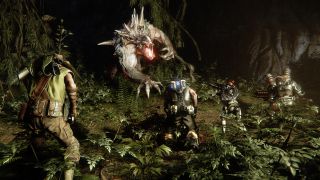
Evolve
The buildup: It's simple fact that the FPS zombie-killing in Left 4 Dead and its sequel offers some of the best co-op gameplay around. And wouldn'tcha know it: Turtle Rock Studios, the developer that worked with Valve to make the original L4D, was striking off on its own with another paranormal, graphically polished shooter. Evolve's asymmetrical multiplayer of four gun-toting hunters versus one giant monster - with everyone being player-controlled - sounded like an endless font of fun, frantic firefights and tense, cat-and-mouse mind games. In addition, Evolve demoed brilliantly, scoring heaps of E3 awards and positive word-of-mouth.
The comedown: In theory, Evolve's asymmetry was a powerful hook, but in long-term practice, it ends up feeling lopsided. Hunters spend 20 minutes chasing down a bullet-sponge that always seems to be just out of reach, while the monster is constantly fleeing in terror until the last third of the round when it's suddenly capable of fighting back. And that's if all the players are of an equal skill level. Add in bland, homologous map layouts, painful grinding to unlock additional characters, and unsavory DLC practices (including multiple Season Passes), and Evolve was basically dead on arrival.
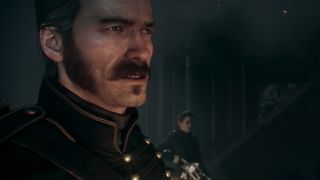
The Order: 1886
The buildup: For years, Microsoft had the monopoly on gritty, squad-based, third-person shooters with its Gears of War series, leaving PlayStation devotees feeling left out on all the Locust-chainsawing fun. But The Order: 1886 was going to change all that. Here was a fresh franchise-in-the-making about grizzled Victorian soldiers who warred with werewolves using imaginative steampunk weaponry, all while sporting magnificent mustaches. Best of all, the visuals in this PS4 exclusive looked positively stunning, on par with feature films.
The comedown: Turns out, The Order doesn't just look like a movie - it plays like one, which isn't so great in a primarily interactive medium like games. The shootouts in The Order rarely offer any moments of strategic freedom, always funneling you towards the next tightly choreographed set piece without much effort required on your part. The only breaks you get from the ho-hum combat are lengthy cutscenes and poorly implemented quick-time events, both of which feel like desperate padding in a comparably short game. The Order: 1886 has all the presentation of a big-budget blockbuster, but lacks the substance necessary to make it stick in gamers' minds.
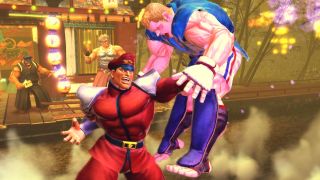
Ultra Street Fighter 4 (PS4)
The buildup: Street Fighter 4 is the definitive modern-day fighting game, ranking among the best games ever. And after the substantial additions of the Super and Ultra versions, as well as heaps of costume DLC, it was a tempting proposition to rebuy all that content one last time in a definitive, affordably priced bundle, all ported to the PlayStation 4 with improved graphics and performance. This would be the last hurrah for Capcom's most popular fighter to date, and make the transition to the PS4 console-exclusive Street Fighter 5 even easier for the legions of SF fans out there.
The comedown: With ports, you always run the risk that the new hardware creates some hard-to-detect kinks that weren't present in the original. USF4 on PS4 is the absolute worst case scenario made real. This version was laughably broken, riddled with bugs that made a mockery of the game in both form (copious audio glitches, busted framerates, laggy menus) and function (inadvertently nerfed special moves and invisible Sonic Booms, to start). No amount of post-release patches can erase the disgrace of the game's launch state, or the fact that it was dropped from the prestigious EVO tournament for the infinitely more reliable 360 version.
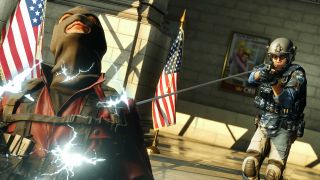
Battlefield Hardline
The buildup: Everyone knows that EA's Battlefield franchise is the one to beat when it comes to FPS multiplayer on a massive scale, where incredible teamplay and hilarious tomfoolery happen in equal measure. And after Battlefield 4 played things relatively safe in terms of setting, Battlefield Hardline looked to go in an intriguing new direction: the age-old standoff between cops and robbers, set in a dense metropolis rather than bombed-out military bases. Visceral Games was handling the development, fresh off the Dead Space series, and emphasized that Hardline would offer a gripping single-player narrative on top of the reliably great multiplayer.
The comedown: Real life doesn't always play along with the best-laid marketing plans, and Battlefield Hardline had the misfortune of being released at a time when the public opinion of law enforcement was... less than enthusiastic. Besides the regrettable timing, performances from notable actors couldn't save the campaign's plot from completely jumping the shark during the latter half, and the additions of ziplines and car chases couldn't make up for the loss of fighter jets and huge tanks in multiplayer. Many Battlefield fans dipped their toes into Hardline, shrugged, and went back to the familiar warzones of Battlefield 4.
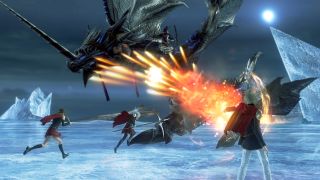
Final Fantasy Type-0 HD
The buildup: For the longest time, Final Fantasy Type-0 was like a white whale in the beloved JRPG franchise, constantly out of reach for the majority of FF's colossal fanbase. This PSP exclusive was never released in English (or outside of Japan, for that matter) - until, that is, the announcement of an HD remaster for Xbox One, PS4, and PC. At long last, the masses would get the chance to experience this offshoot of the FF13 universe, controlling a group of 14 unique teenage protagonists (all playable!) in action-packed real-time combat.
The comedown: Perhaps the tear-jerking, heart-wrenching war story at the heart of Type-0 is too much for the average FF fan. Maybe players can't get over the fidgety camera and clunky interface, or textures and environments that look bland no more matter how upscaled they may be. Whatever the case, Type-0 HD didn't make much of a splash after all that anticipation. For many, the bundled-in Final Fantasy 15 demo was their primary reason for buying the game at all.
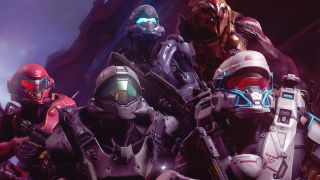
Halo 5: Guardians
The buildup: Ok, I'm cheating a bit on this one - Halo 5: Guardians is probably still fresh in your mind, but that might be due to the massive letdown that makes up half of the game. The marketing for Master Chief's return on Xbox One was inescapable, with cryptic teases, big-budget TV commercials, a dedicated hashtag (#HuntTheTruth), and a direct tie-in to the Halo: Nightfall miniseries starring the new leading man Jameson Locke. There was even additional lore via a surprisingly excellent podcast series in the style of Serial, starring none other than Key & Peele's Keegan-Michael Key. All signs pointed to Halo 5: Guardians as a storytelling turning point that would completely change Halo as we know it.
The comedown: Worry not - Halo 5's multiplayer still shines, particularly in the large-scale fights of Warzone mode. The problem here is the single-player campaign, which is rife with forgettable characters and filler missions; most damnably, it simply doesn't have a story. Guardian's squad-centric campaign offers none of the climactic payoffs that the marketing suggested (most of the scenes shown off never even happen). Instead, the plot falls back on unresolved setups for later games and - spoiler warning - reduces the tense, heavily advertised conflict between Master Chief and Locke to a comically brief fistfight between two heavily armored soldiers (which looks as goofy as it sounds). Halo 5 had its thunder swiftly stolen by Fallout 4's debut a mere two weeks later, but the lackluster campaign certainly didn't do it any favors.

Lucas Sullivan is the former US Managing Editor of 12DOVE. Lucas spent seven years working for GR, starting as an Associate Editor in 2012 before climbing the ranks. He left us in 2019 to pursue a career path on the other side of the fence, joining 2K Games as a Global Content Manager. Lucas doesn't get to write about games like Borderlands and Mafia anymore, but he does get to help make and market them.
Most Popular
